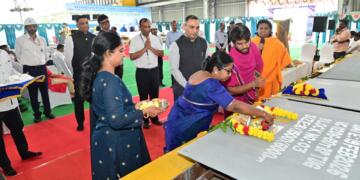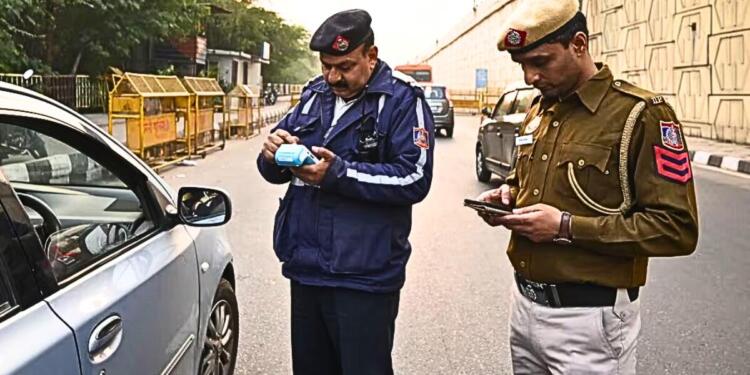Lately, the Indian authorities have increased efforts to deal with illegal Bangladeshis, with several operations that have resulted in numerous arrests and deportations. The operation has been based on orders from the higher authorities to check illegal immigration and ensure proper compliance with the legal procedure.
In Delhi, police deported a 28-year-old Bangladeshi woman who had been living illegally in the city for six years. She was traced out through a special drive ordered by the Delhi LG secretariat and found to be without proper permission in the national capital and Mumbai.
The woman is a resident of Singasholpur village under Narail Sadar Upazila in Bangladesh, said Deputy Commissioner of Police (Southwest) Surendra Choudhary.
The Anti-Narcotics Unit of the Delhi Police initiated the drive under the Foreigners Act. After the LG secretariat issued a directive to the chief secretary and police chief to initiate a two-month campaign to identify illegal immigrants in Delhi, the initiative was put into motion.
Teams have been established in all 15 districts to check the voter ID and Aadhaar card in places such as Kalindi Kunj, Shaheen Bagh, Hazrat Nizamuddin, and Jamia Nagar. All the data collected is being forwarded to the Foreigners Regional Registration Office, and an Aadhaar card credibility investigation is under way. So far, more than 1,500 Bangladeshis have been identified. Two arrests have been made in Delhi.
Meanwhile, the Anti-Terrorism Squad of Maharashtra made an important catch when it detained 17 Bangladeshi illegal immigrants in Mumbai, Navi Mumbai, Thane, and Nashik. Among the detainees, 14 were males and three were females; all the accused entered and stayed in India without valid documents. The ATS lodged ten cases under the Foreigners Act and relevant enactments.
The Assam Police have also increased vigilance along the India-Bangladesh border, detaining five Bangladeshi nationals in December 2024. The illegal Bangladeshis were identified as Mohammed Noor Islam, Mohammed Imran, Yasmin Akhtar, Ishmo Tara Akhtar, and Mohammed Babul Hussain. They were apprehended and then deported. The recent unrest in Bangladesh has kept the authorities in the Northeast on high alert, and over 160 illegal immigrants have been detained in the region.
The illegal immigration issue has been one of the long-standing issues, especially along India’s 1,885 km porous border with Bangladesh. Between January 2019 and April 2022, Indian authorities apprehended and sent back 14,361 Bangladeshi nationals trying to cross illegally. The South Bengal Frontier, which shares a 913.32 km border, was the most active region, with 11,034 people caught. The area is an unfenced and riverine zone, which makes it a hotbed for illegal migration.
Such steps towards illegal immigration have involved the coordinated processes of deporting. As recently as October 2019, 60 undocumented Bangladeshi immigrants were accompanied by authorities for repatriation purposes in Kolkata. Such processes make it necessary to involve systematic processes when dealing with cross-border migration.
As India continues with the problem of illegal migration, it has strengthened border security, improved mechanisms of identification, and put into place legal frameworks that would be followed. The present crackdowns show a vigorous attitude towards illegal migration into the country in order to secure the country’s sovereignty and its resources.

























